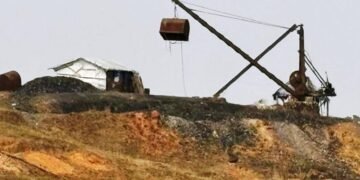Gaza is being relentlessly and inexorably bombed round the clock by the Israelis for nearly a month, and apart from the appalling level of human victims, the infrastructure of the confined coastal strip – apartment buildings, schools, markets, hospitals, and even mosques and churches – are being smashed. Even if by some miracle there is a ceasefire, how will the two million Palestinians live? However, the increasing tempo of the Israeli attacks and the mounting number of fatalities, overwhelmingly civilian, in the Gaza Strip – and now increasingly, in the West Bank too – even as Benjamin Netanyahu’s government firmly rules out any ceasefire, and its supporters, chiefly the US, limit their call to “humanitarian pauses”.
Fears that Israel’s expanding military operations in Gaza could escalate into a regional conflict are clouding the global economy’s outlook, threatening to dampen growth and reignite a rise in energy and food prices. Rich and poor nations were just beginning to catch their breath after a three-year string of economic shocks that included the Covid-19 pandemic and Russia’s invasion of Ukraine. Stinging inflation has been dropping, oil prices have stabilised and predicted recessions have been avoided. Now, some leading international financial institutions and private investors have warned that the fragile recovery could turn bad. This is the first time that we have had two energy shocks on oil and gas prices at the same time due to the impact of the wars in Ukraine and the Middle East.
Those price increases not only chip away at the buying power of families and companies but also push up the cost of food production, adding to high levels of food insecurity, particularly in developing countries like Egypt, Pakistan and Sri Lanka, The New York Times reported. As it is, nations are already struggling with unusually high levels of debt, limp private investment and the slowest recovery in trade in five decades, making it tougher for them to grow their way out of the crisis. Higher interest rates, the result of central bank efforts to tame inflation, have made it more difficult for governments and private companies to get access to credit and stave off default.
Economists said a worst-case scenario in which the Gaza war broadened could cause oil prices to spike to $150 a barrel, from about $85 currently. The global economic consequences of this scenario are severe. The prevailing mood now is uncertainty, which is weighing on investment decisions and could discourage businesses from expanding into emerging markets. Borrowing costs have soared, and companies in several countries, from Brazil to China, are expected to have trouble refinancing their debt. We are in one of the most fragile junctures for the world economy. Jamie Dimon, the chief executive of JPMorgan Chase, was right when he said last month that “this may be the most dangerous time the world has seen in decades”.


























